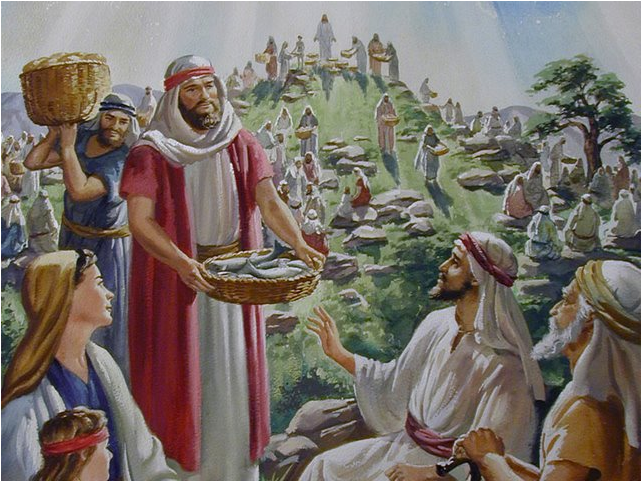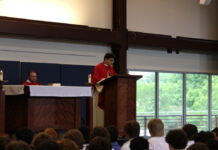“So the men reclined, about five thousand in number.
Then Jesus took the loaves, gave thanks,
and distributed them to those who were reclining,
and also as much of the fish as they wanted.
When they had had their fill, he said to his disciples,
“Gather the fragments left over,
so that nothing will be wasted.”
So they collected them,
and filled twelve wicker baskets with fragments
from the five barley loaves that had been more than they could eat.”
John 6:1-15
5,000 of Christ’s devout followers reclined in the lush, green grass as Jesus effortlessly performed one the most famous miracles in history. With barely 5 barley loaves and only 2 fish, he fed all 5,000 of those followers until each was more than full. They were “more than full”?! Each person had 1/1000 of a loaf of bread and 1/2,500 of a fish. Breaking this down, there are two different ways to look at this logistical nightmare.

View #1: The Multiplication of Loaves
Jesus Christ, the man who turned water into wine, is capable of anything and everything imaginable. It’s not crazy to think that he could, in theory, take the minuscule amount of supplies he was given, and then multiply the bread and the fish so that each person could have their fill. Christ’s miracles know no boundaries and this would just be another example of how his immense power is seen in our physical world.
View #2 Faith as our Food
Faith in God feeds our soul. It could be interpreted that, rather than Jesus physically creating more loaves out of thin air, that the followers’ faith filled them up with the holy spirit, and they were more than content sharing their minute rations.
One does not live on bread alone,
but on every word that comes forth from the mouth of God.
The Alleluia from the mass supports the second claim, stating that the word of the lord feeds us and fills us (spiritually). Bobby Turner ’17, a self-proclaimed “rational thinker,” remarked, “I really believe in the power of God’s Words. I think that this story really demonstrates the filling power his words have on our soul by making it analogous to the relatable problem of hunger. It’s really masterful writing, in my humble opinion.”
Junior Evan Bausbacher said that he “loved the way that the priest put it in his homily,” and personally believes that Christ “performs extraordinary miracles in our lives today.” He continued, “I can’t help but feel the Lord’s presence when I hear stories like that.”
No matter what your opinion on the gospel is, we can all unite in our praise and worship of the Lord.






